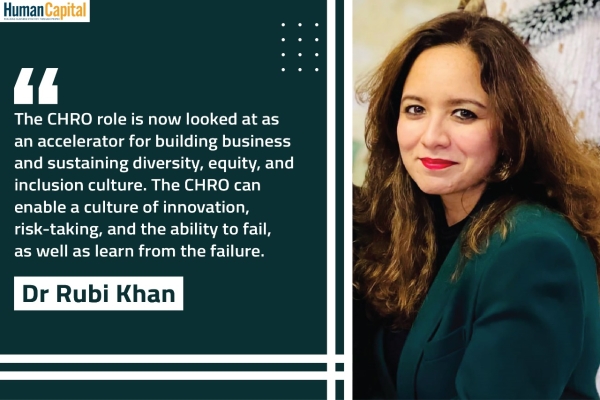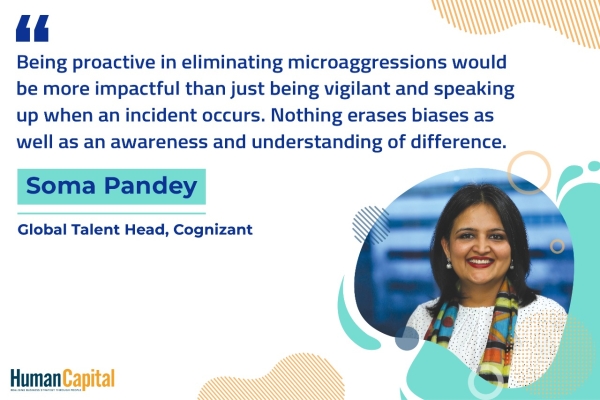Thanks to Daniel Goleman, we today acknowledge Emotional Intelligence's true connection with leadership - a connection that organisations will need to explore with greater zeal when appointing and creating leaders.
Every few years, the business world witnesses the foray of concepts that remain in vogue for some time before they fade away or are replaced by something else. I think the world owes Daniel Goleman to have brought Emotional intelligence (EI) to the best-seller list, and thankfully, we acknowledge the true connection it has with leadership - a connection that organisations will need to explore with greater zeal when appointing and creating leaders.
When climbing a mountain, you prepare to reach the base camp before you are ready to target the summit. Many years ago, I was introduced to the concept of “Base camp in career” by a leader I greatly admire. Though one can get to the base camp with strong technical knowledge, but reaching the summit requires more – whose definition overlaps into multiple areas. It is a common observation that people in organisations are promoted for their performance, but are not always coached or prepared for new roles and responsibilities that the promotion brings. A simple search on google will reveal that credible research put the percentage of firsttime managers trained to take on their new role between 15% to 20%. So, as managers, they grow lacking in key areas needed to be effective leaders. Also, in some roles, it is okay to not expect leadership traits, for instance, it is often regarded as normal to expect a technically competent CTO with very poor people skills and maybe a bonus to have a technically sound CFO with great people skills.
So, why should we care about EI? As quoted above by Warren Bennis, it is a debatable and a separate conversation as to whether IQ can be enhanced or otherwise - improving Emotional intelligence, on the other hand, is possible and driven by one’s desire to do so. One’s study of exploring the connection that EI has with effective leadership led to the discovery of certain dimensions that needs deeper digging.
Relationship with Mindfulness
Emotional intelligence includes 4 components:
♦ Self-awareness
♦ Self-management
♦ Social Awareness
♦ Relationship Management
Self-awareness is regarded as the foundation of all the other components of Emotional Intelligence because it starts with “you” being aware of “yourself”. A few months ago, one’s encounter with mindfulness led to the shattering one’s own concept of self-awareness. This led to the realisation that one was either in the past or in the future, but definitely not in the present fully aware of oneself. Marshall Goldsmith refers to Dr Carol Kauffman’s question as the most useful tool to increase mindfulness and that is, “Am I Being the person I want to be right now?” With practice, mindfulness will help you become an observer of your feelings and not be driven by it. It develops what is seemingly an emotion literacy to recognise and accept. Mindful leaders are not consumed by targets and goals. They understand the balance needed to focus on the present, leading to the goals because what matters is the “now” in the journey. Self-awareness allows leaders to connect with others and build relationships, and this, in fact, allows them to be aware of the environmental triggers.
Impact of Culture
As organisations continue to become more multicultural and diverse in nature, the question is how effective can a leader be without cultural intelligence. Many empirical research and studies conducted clearly establish a correlation between culture and emotions. So, what does this mean for an organisation in the context of managing change globally? We have numerous examples of big brands failing in new markets because their strategies failed to recognise the culture! According to an article in Forbes, over 40% of expat assignments fail due to crosscultural challenges. And there lies the importance to invest in EI with the context of cultural dimensions. They cannot be looked at in isolation. The interesting thing is that cultural intelligence can be improved and it starts with self-awareness.
We also need to keep in mind that the aspect of cultural context is not limited to global organisations. Even within a country, it differs and with more focus on diversity and inclusion at the workplace, there is a great need to understand the connection.
Talent development
Two salient aspects need to be highlighted here.
Emotional Intelligence is popular amongst talent development interventions because of the impact it has on leadership performance. The issue with a programme like this is that it is often looked at and delivered as a standalone event. It brings about awareness of what EI is but does not necessarily focus on the development of competencies within the 4 components of Emotional Intelligence. An article by Daniel Goleman and Richard Boyatzis in the Harvard Business Review beautifully explains the need for developing key EI capabilities and details 12 competencies.
Leaders need to develop a balance of strengths across these in order to develop truly effective leadership skills.
A clear understanding of Emotional intelligence reveals the irrefutable fact that it cannot be developed overnight. So, including this in the leadership development programme will not yield the best results for an organisation. This supports the case for developing leaders within by investing early. An appreciation of the competencies or EI capabilities early on is required for example in middle management level. EI capabilities are not something that only comes to play in leadership positions. They are required for your everyday decisions and interactions with teams. As one grows, the context of these competencies in terms of outcome changes and that requires harnessing too. However, the building of the foundation cannot be delayed.
EI as a part of Educational Curriculum
Building on the point discussed above for an entirely different audience - we must question and rethink of how are we preparing our children to succeed in this world. By the time those in school now enter the corporate world or takeover any profession for that matter, the definition of EI would have evolved manya-fold – may be in relation to the bots and robots in the workplace. The increased screen time, widening generation gap makes it further difficult and it is imperative that children learn to connect, feel empathy, build and value relationships. Only a handful of schools are investing in these “life skills”. Another aspect on the same lines is how we as parents lead by example by being comfortable about talking and dealing with our own emotions. A friend that I often go to for parenting tips shared with me how she introduced her children to the wheel of emotions very early on - they can identify the exact emotion they feel beyond the 8 core emotions that we categorise everything under! If we are expecting interventions on EI to make a difference for adults, then imagine the seeds we are sowing by investing in the young minds - the quality of leaders in the making!
The World Economic Forum refers to EI as an essential part of the “whole” person and puts it as a critical factor that will separate your star performers, similar to the statement by Warren Bennis. It is not about the importance of EI in future. It is about how EI has always been an integral part of leadership performance. The acknowledgement of EI in the time to come will only become more evident in everything we do. Human-Centred Design thinking approach to innovation and problem solving keeps “empathy” in the core - where do you think that appreciation comes from?
Disclaimer: The thoughts expressed in this article solely belong to the professional and do not reflect that of the Organisation she works for.

Is your organisation post-COVID-ready?
Trending
-
SBI General Insurance Launches Digital Health Campaign
-
CredR Rolls Out 'Life Happens' Leave For Its Employees
-
Meesho Announces 30-Week Gender-Neutral Parental Leave Policy
-
Microsoft Unveils Tech Resilience Curriculum To Foster An Inclusive Future
-
60% Indian Professionals Looking For Job Change Due To COVID: Survey
-
SpringPeople And Siemens Collaborate For Digital Transformation Push
-
86% Professionals Believe Hybrid Work Is Essential For Work Life Balance: Report
-
Almost 1 In Every 3 People's Personal Life Affected Due To Work Stress
-
Meesho Rolls Out Reset And Recharge Policy For Employees
-
80% Of Talent Leaders & Academics Say Pandemic Changed Skill Needs For Youth: Report
-
Hero Electric Rolls Out 'Hero Care' Program For Employees
-
Human Capital In Collaboration With ASSOCHAM Hosts Virtual Conference
-
IKEA India, Tata STRIVE Collaborate To Create Employability And Entrepreneurship Opportunities
-
SAP India, Microsoft Launch Tech Skilling Program for Young Women
-
DXC Technology, NASSCOM Collaborate For Employability Skills Program
-
Lenskart To Hire Over 2000 Employees Across India By 2022
-
Mindtree Launches Learn-and-Earn Program
-
Tata AIA Extends 'Raksha Ka Teeka' To Its Employees
-
Swadesh Behera Is The New CPO Of Titan
-
NetConnect Global Plans To Recruit 5000 Tech Professionals In India
-
Hubhopper Plans To Hire 60% Of Indian Podcasters By 2022
-
Corporate India Needs More Women In Leadership Roles: Report
-
Aon to Invest $30 Million and Create 10,000 Apprenticeships by 2030
-
Tech Mahindra Launches ‘Gift a Career’ Initiative for Upskilling of Youth
-
40% Women Prefer Flexible Working Options in Post-COVID World: Survey
-
3 out of 4 companies believe they can effectively hire employees virtually: Report
-
Vodafone , CGI and NASSCOM Foundation launch digital skills platform
-
Odisha: Bank, postal employees to deliver cash for elderly, differently-abled persons
-
Skill India launches AI-based digital platform for "Skilled Workforce"
-
Hiring activity declines 6.73% in first quarter: Survey
-
70% startups impacted by COVID-19 pandemic
-
Bajaj Allianz Life ropes in Santanu Banerjee as CHRO
-
Over 70 Percent MSMEs look at cutting jobs to sustain businesses
-
93 Per Cent employees stressed about returning to office post-lockdown
-
Johnson & Johnson India announces family benefits for same gender partners
-
Indian firms turning friendly towards working mothers
-
Welspun India names Rajendra Mehta as new CHRO
-
Wipro partners with NASSCOM to launch Future Skills platform



Human Capital is niche media organisation for HR and Corporate. Our aim is to create an outstanding user experience for all our clients, readers, employers and employees through inspiring, industry-leading content pieces in the form of case studies, analysis, expert reports, authored articles and blogs. We cover topics such as talent acquisition, learning and development, diversity and inclusion, leadership, compensation, recruitment and many more.
Subscribe Now












































Comment